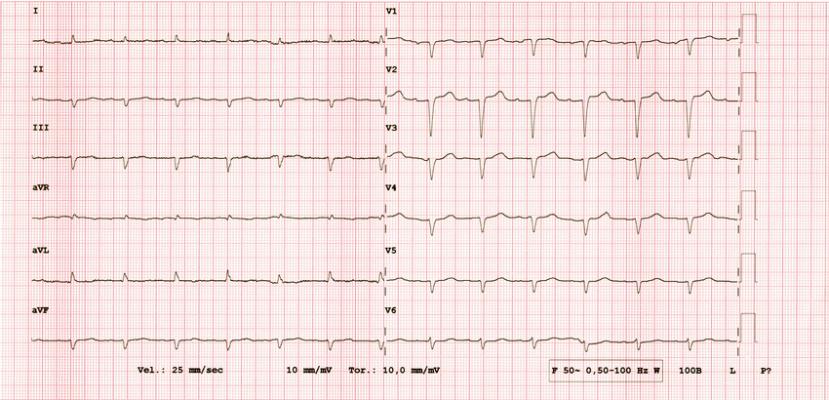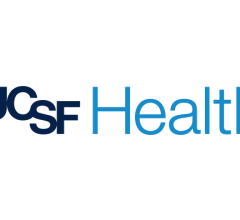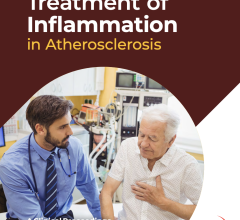
The American College of Cardiology (ACC) has published its “2023 ACC Expert Consensus Decision Pathway on Comprehensive Multidisciplinary Care for the Patient with Cardiac Amyloidosis” in the Journal of the American College of Cardiology. Photo credit: Getty Images
February 8, 2023 — The American College of Cardiology (ACC) has published its “2023 ACC Expert Consensus Decision Pathway on Comprehensive Multidisciplinary Care for the Patient with Cardiac Amyloidosis” in the Journal of the American College of Cardiology. Significant portions of that report, published January 23, 2023, are included in this summary.
Cardiac amyloidosis is often underdiagnosed, and many individuals will see more than five physicians before receiving a correct diagnosis. Cardiac amyloidosis is a rare disease which occurs when there is a buildup of amyloid fibrils (an abnormal protein) in the heart tissue; if left untreated, cardiac amyloidosis can cause heart failure. It is associated with either immunoglobulin light-chain aggregations (AL-CM) or transthyretin (ATTR-CM).
Given the rarity of cardiac amyloidosis, the Expert Consensus Decision Pathway writing committee highlights the critical importance of recognizing and diagnosing cardiac amyloidosis at an early stage to treat the affected individual and allow for the most favorable outcome, the report noted. To that end, the document lays out a diagnostic algorithm, including the role of the monoclonal protein screen, bone scintigraphy and/or genetic testing and/or biopsy.
The document focuses on the need for a multidisciplinary approach to individual care. Dedicated experts across diverse medical specialties are vastly important to address and optimize the full range of care levels. Individuals with cardiac amyloidosis often have extracardiac manifestations involving the kidney, nervous system, gastrointestinal tract and musculoskeletal systems that can lead to significant morbidity and impairment to quality of life. In addition, the writing committee includes steps to implement a treatment plan with specific attention to the roles of traditional heart failure medications and arrhythmia management.
Approved by the American College of Cardiology Clinical Policy Approval Committee in December 2022, the document was endorsed by the American Association of Neuromuscular & Electrodiagnostic Medicine, the Heart Failure Society of America and the International Society of Amyloidosis; the American Academy of Neurology affirmed the value of the statement.
Comprehensive in scope, it offers a broad range of information and guidance to those offering care to patients, including: an overview on the condition; pitfalls and delays in diagnosis; the need for multidisciplinary approach; collaboration between general cardiologists and amyloid specialists; the role of the each, as well as collaboration between cardiologists and other specialists (genetics, neurology, gastroenterology, hematology, nephrology); barriers to equitable care; costs and approval processes of treatment therapies; economic burden; need for telehealth in the care of patients with amyloidosis; as well as the need for ongoing clinical trials.
The report’s introduction was prepared by Nicole M. Bhave, MD, FACC, Chair of the ACC Solution Set Oversight Committee, and portions of that segment follow:
“The American College of Cardiology (ACC) has a long history of developing documents (eg, decision pathways, health policy statements, appropriate use criteria) to provide members with guidance on both clinical and nonclinical topics relevant to cardiovascular care,” wrote Bhave. She continued, “Central to the ACC’s strategic plan is the generation of “actionable knowledge”—a concept that places emphasis on making clinical information easier to consume, share, integrate, and update. To this end, the ACC has evolved from developing isolated documents to developing integrated ‘solution sets.’ Expert consensus decision pathways (ECDPs) represent a key component of solution sets. The methodology for ECDPs is grounded in assembling a group of clinical experts to develop content that addresses key questions facing our members across a range of high-value clinical topics. This content is used to inform the development of various tools that accelerate real-time use of clinical policy at the point of care. They are not intended to provide a single correct answer; rather, they encourage clinicians to ask questions and consider important factors as they define treatment plans for their patients…The success of the solution sets rests firmly on their ability to have a measurable impact on the delivery of care. Because solution sets reflect current evidence and ongoing gaps in care, the associated content will be refined over time to best match changing evidence and member needs.”
The writing committee for “2023 ACC Expert Consensus Decision Pathway on Comprehensive Multidisciplinary Care for the Patient with Cardiac Amyloidosis: A Report of the American College of Cardiology Solution Set Oversight Committee” includes: Michelle M. Kittleson, MD, PhD, FACC, Chair, Frederick L. Ruberg, MD, FACC, Vice Chair, Amrut V. Ambardekar, MD, FACC Thomas H. Brannagan, MD Richard K. Cheng, MD, MSc, FACC John O. Clarke, MD Laura M. Dember, MD Janell Grazzini Frantz, MS, ARNP Ray E. Hershberger, MD, FACC Mathew S. Maurer, MD, FACC Jose Nativi-Nicolau, MD, MSc, FACC Vaishali Sanchorawala, MD, FACC Farooq H. Sheikh, MD, FACC.
The authors offered the following, portions offered here, within the report:
Methods: The ACC created the Heart House Roundtables, a structured format of interactive discussion among a broad group of stakeholders, to address high-value topics and issues that clinicians and patients face daily, such as the diagnosis and management of cardiac amyloidosis. The planning committee for the Cardiac Amyloidosis roundtable was led by Michelle M. Kittleson, MD, PhD, FACC, Director of Postgraduate Education in Heart Failure and Transplantation, Director of Heart Failure Research, and Professor of Medicine at the Smidt Heart Institute at Cedars-Sinai, and Frederick L. Ruberg, MD, FACC, Director, Advanced Cardiovascular Imaging Program Associate Director, Cardiovascular Fellowship Program Associate Professor of Medicine and Radiology, Boston Medical Center and Boston University Chobanian & Avedisian School of Medicine.
To accommodate the multiple perspectives necessary to synthesize and construct new therapeutic frameworks for patients with amyloidosis, the report noted that the roundtable was designed to include experts in diverse medical specialties, such as cardiology, genetics, health care disparities, hematology, orthopedic surgery, pathology, and pharmacoeconomics, while also involving physicians, nurses, and advanced practice providers. The authors added that, recognizing the significant impact of trials and approved medications, discussions focused on the real-world challenges faced in working toward the accurate diagnosis and appropriate management of cardiac amyloidosis for improved patient outcomes. As a result, the ACC saw an opportunity to provide guidance to bridge a communication gap between cardiovascular clinicians and other specialists who jointly manage patients with amyloidosis. To support this effort, a writing committee of multidisciplinary experts was convened in 2022 to develop an ECDP providing guidance on the diagnosis and management of cardiac amyloidosis as well as the identification of extracardiac manifestations and timely referral to relevant specialists.
Ongoing Clinical Trials Needed: To advance the field, amyloid specialists and their patients will need to continue to participate in a variety of clinical research efforts such as participation in industry-sponsored multicenter clinical trials, implementation studies, and pragmatic trials, including large registries. Broad access to such clinical research will ensure that an appropriate diversity of patients and disease types are studied, ensure equitability, and will be a critical component for the care of our current and future patients with ATTR-CM.
Discussion, Implications of Pathway: The paradigm of care for the cardiac amyloidosis patient is evolving, and that evolution is reflected in this ECDP. Not only is cardiac amyloidosis more common than previously thought and the subtleties of diagnosis important to recognize, but the multisystem manifestations require attention and appropriate referral to skilled subspecialists. For example, although the noninvasive diagnosis of ATTR cardiac amyloidosis appears potentially straightforward, there are diagnostic pitfalls enumerated herein that may result in misdiagnosis, with catastrophic consequences for the patient.
Thus, cardiovascular specialists need to incorporate the appropriate index of suspicion, accurate diagnostic algorithms, timely identification of multisystem involvement with appropriate multidisciplinary collaboration, and disease management strategies to optimize outcomes in patients with amyloidosis.
This ECDP and associated treatment algorithms should be used in concert with established guidelines for the management of HF. Although intended to facilitate clinical decision-making, the information provided in this ECDP should complement rather than supersede good clinical judgement. The treatment of patients with amyloidosis is complex. It involves physicians and advanced-practice providers across a wide array of specialties, including primary care, cardiology, nephrology, hematology, neurology, gastroenterology, and palliative care. It also involves associated providers such as nurses, pharmacists, dieticians, and geneticists. In this manner, optimal care reflects the wholistic potential of a team-based approach.
In its final notes on the report, the authors offered: “Ultimately, the primary goals of care for all patients with cardiac amyloidosis are improved survival and maximized quality of life through each patient’s individual disease journey. Achieving these important goals requires a team-based approach to achieve optimal outcomes. We anticipate that the algorithms proposed here will continue to evolve as new evidence emerges but that the overarching and now attainable goal of improving cardiovascular outcomes in patients with cardiac amyloidosis will remain consistent.”
For more information: www.acc.org
References:
Kittleson MM, Ruberg FL, Ambardekar AV, Brannagan TH, Cheng RK, Clarke JO, Dember LM, Frantz JG, Hershberger RE, Maurer MS, Nativi-Nicolau J, Sanchorawala V, Sheikh FH. 2023 ACC expert consensus decision pathway on comprehensive multidisciplinary care for the patient with cardiac amyloidosis: a report of the American College of Cardiology Solution Set Oversight Committee. J Am Coll Cardiol. 2023.
https://doi.org/10.1016/j.jacc.2022.11.022
https://www.jacc.org/doi/10.1016/j.jacc.2022.11.022


 February 04, 2026
February 04, 2026 









